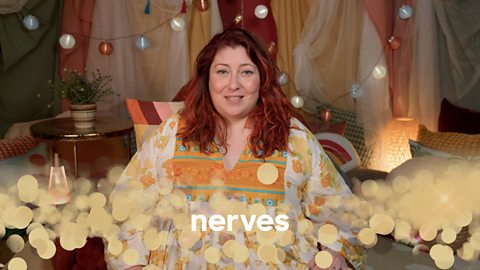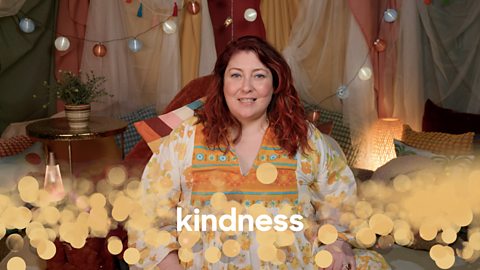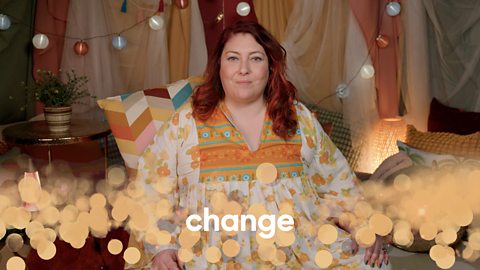How to build courage
Building courage helps us to feel more comfortable in hard situations. This could be:
- Standing up for something or someone that really matters to you
- Trying to do something you’ve never done before
- Asking for help
- Saying no to something you don’t want to do
Video – Advice on building your courage
Wellbeing professional, Lorna Walker, gives us some advice about how to build courage in situations where we aren't feeling very brave.
Being courageous can mean so many different things to each of us. It can mean connecting to what we really feel and sometimes standing up for what really matters to us. It can mean doing something new, that makes us feel a bit nervous. It can be asking for help when we're struggling. Or it can just be saying no to something that others want us to do, but we know deep down isn't what's best for us. It can take courage just to really be ourselves.
What's great about courage is that we can practise it, just like everything else.
So a small first step you can make towards making courage a habit is by first being aware of what you might find a little scary. Maybe you're nervous about being laughed at, people not liking you, or judging you in some way or getting something wrong. Think of something that often comes up in your day-to-day life, perhaps at school that you find scary. Choose something small.
It could be taking part in a P.E. class, or music.
Or even raising your hand to ask a question. What do you usually do? Maybe you find a way to avoid this, or do it but find it really uncomfortable. So now you can pay special attention to this thing that feels challenging. Try to notice how your body feels. Maybe your heart even beats a bit faster, or maybe you have butterflies in your tummy just thinking about it. Now, you have the chance to notice these feelings for a moment.
When you feel these things, your body is trying to keep you safe, but sometimes all it means is that you have a chance to let your body know that you're okay, and that it's time to build a different habit.
Take a deep slow breath and imagine very clearly doing the thing.
Ask the question, raising your hand, saying yes or no to something. Talking to someone new. So now whenever that situation, or other ones, that make you feel nervous come up. You have a choice to respond to your feelings in the way you often do.
Or you can use that feeling to remind you to build your courage. Maybe if in the moment, you can recognise, "I'm finding this scary to do." It's the perfect time to practise. You might be surprised as you go through your day today, how many different chances you have to encourage this habit. Try it and see how it feels.
Activity – Imagine overcoming your fears
Dealing with something that makes you feel nervous can be easier if you can imagine yourself being brave and managing to do it.
Step one
Think of something that comes up in your day-to-day life that you find scary.
It might be…
- taking part in a P.E. class
- playing an instrument in music
- raising your hand to ask a question
Step two
Think about what you usually do in this situation :
- Maybe you find a way to avoid it.
- Maybe you do it but find it really uncomfortable.
Step three
Try to notice how your body feels:
- Maybe your heart beats faster.
- Maybe you have butterflies in your tummy.
- Maybe you get a little bit sweaty.
These feelings are signs that your body is trying to keep you safe.
When your brain thinks something is stressful or scary, your body reacts. Your body can't always tell the difference between something really scary that might harm you, and something that's actually okay.
When you notice these feelings, you have a chance to let your body know that you are okay and that it's time to build a new habit.
Step four
Take a slow deep breath and try to very clearly imagine being brave and doing the thing that scares you.
Now whenever you are in the situation that scares you, try and recognise how your body feels. Remember how you imagined getting through the situation.
Try and use these feelings to remind yourself that you will be OK, that you can be brave and that you can cope with your fears.
More on Mental and emotional wellbeing
Find out more by working through a topic
- count2 of 12

- count3 of 12

- count4 of 12

- count5 of 12
